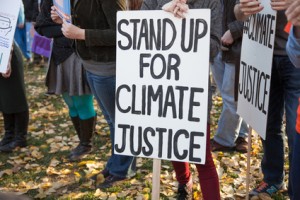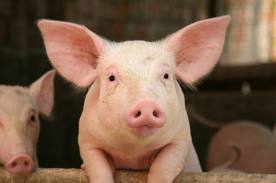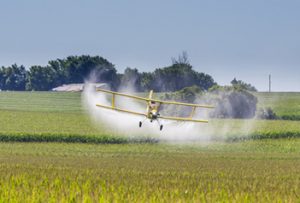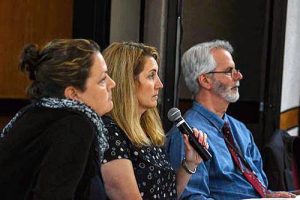Environmental and Climate Justice
 In light of our current ecological transition, the Rachel Carson Council believes it is important to deepen relationships with our partner grassroots organizations to ensure that everyone has the right to environmental justice, articulated by the North Carolina Environmental Justice Network as “the right to a safe, healthy, productive, and sustainable environment…where ‘environment’ is considered in its totality to include the ecological (biological), physical (natural and built), social, political, aesthetic, and economic environments.”
In light of our current ecological transition, the Rachel Carson Council believes it is important to deepen relationships with our partner grassroots organizations to ensure that everyone has the right to environmental justice, articulated by the North Carolina Environmental Justice Network as “the right to a safe, healthy, productive, and sustainable environment…where ‘environment’ is considered in its totality to include the ecological (biological), physical (natural and built), social, political, aesthetic, and economic environments.”
Energy and Climate Change
Climate change is not a distant disaster. Caused by the burning of fossil fuels such as coal and natural gas, unsustainable agricultural practices, the destruction of forests, and excessive levels of consumption, the effects of climate change are now unmistakable in the United States, and even more so in the developing world. We are witnessing increased temperatures, more severe hurricanes, extended droughts, changes in agricultural patterns leading to food scarcity, loss of biodiversity, melting glaciers and rising sea levels, public health epidemics, and forced migration. These adverse impacts of global warming are disproportionately borne by communities of color and low-income communities in the United States and around the world.
The Rachel Carson Council supports the mobilization of communities most affected by climate change and works to reduce income inequality by advocating for the creation of jobs in clean energy, sustainable agriculture, and energy efficiency. Read our comprehensive reports, Blast Zone, which explores the economic and political forces driving the Atlantic Coast Pipeline (ACP), and Clear Cut, which highlights the fallacies and socioeconomic injustices surrounding the wood pellet industry in North Carolina, to see how we use research to translate our mission into action.
Industrial Agriculture
Food, at its purest, connects humans to the natural world natural world. Unfortunately, the industrial scale of meat production and agriculture gives us the impression that we as consumers are far removed from production. Concentrated Animal Feeding Operations (CAFOs), corn and soy monocultures, subsidies, and unfair labor contracts become invisible, or too removed to seem worrisome.
In our recent publications, Pork and Pollution and Fowl Matters, we reveal the consequences of swine and poultry waste on consumers, frontline communities, and the environment. Cheap beef, barbecue, and chicken wreak havoc on the air, water, soil and on the health and well-being of communities, workers, farmers, and consumers across the country. We address our unsustainable food system through policy change and building social movements, as well as by amplifying smaller-scale alternatives. Together, we can work for a more decentralized, democratic, and cooperative agriculture system—one that has been practiced by traditional farming communities for millennia.
Toxic Waste and Chemicals
The healthiest communities enjoy the right to clean air, land, water, food, and energy. This means that they are free from exposure to nuclear testing, pesticides, toxic chemicals, and hazardous wastes. In the last four decades, the failure to regulate toxic substances has put human health and reproductive justice in jeopardy. As we know from reports like Toxic Waste and Race at 20, the concentration of waste disproportionately impacts low-income communities and communities of color.
Maryland Department of the Environment and Delmarva Poultry Industry Partner for New Air Quality Project
First of three articles.
By Maggie Cummings
The purpose of the meeting was to review the details of the project with the public, explain the Department’s specifications for the site selection, and provide an opportunity for the public to offer suggestions for the location of the new monitoring stations.
The Campbell Foundation and DPI have agreed to provide financial support for the project, contributing over $500,000. With their large financial stake, each has a major role in the implementation of monitoring.
Second of three articles
By Maggie Cummings
 In our first RCC installment following the Maryland Department of the Environment (MDE) partnership to conduct an air quality project on the Lower Eastern Shore, we provided a brief overview of the parties involved, how the project is planning to be carried out, and what occurred at the sole informational meeting for the public. Here, we dive deeper into the connection between each party: the Campbell Foundation, Delmarva Poultry Inc. (DPI), and MDE. We go on to highlight inconsistencies between the partnership’s practice and what they discussed at the April, 2019 informational meeting. Our review raises serious questions about whether the proposed air monitoring project is a good option that takes into consideration the interests of all citizens.
In our first RCC installment following the Maryland Department of the Environment (MDE) partnership to conduct an air quality project on the Lower Eastern Shore, we provided a brief overview of the parties involved, how the project is planning to be carried out, and what occurred at the sole informational meeting for the public. Here, we dive deeper into the connection between each party: the Campbell Foundation, Delmarva Poultry Inc. (DPI), and MDE. We go on to highlight inconsistencies between the partnership’s practice and what they discussed at the April, 2019 informational meeting. Our review raises serious questions about whether the proposed air monitoring project is a good option that takes into consideration the interests of all citizens.










